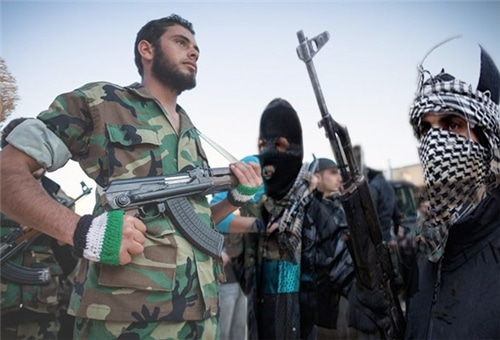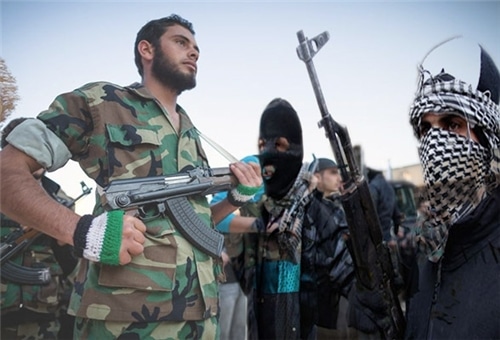Coverage of the Syrian war will be remembered as one of the most shameful episodes in the history of the American press. Reporting about carnage in the ancient city of Aleppo is the latest reason why.
For three years, violent militants have run Aleppo. Their rule began with a wave of repression. They posted notices warning residents: “Don’t send your children to school. If you do, we will get the backpack and you will get the coffin.” Then they destroyed factories, hoping that unemployed workers would have no recourse other than to become fighters. They trucked looted machinery to Turkey and sold it.
This month, people in Aleppo have finally seen glimmers of hope. The Syrian army and its allies have been pushing militants out of the city. Last week they reclaimed the main power plant. Regular electricity may soon be restored. The militants’ hold on the city could be ending.
Militants, true to form, are wreaking havoc as they are pushed out of the city by Russian and Syrian Army forces. “Turkish-Saudi backed ‘moderate rebels’ showered the residential neighborhoods of Aleppo with unguided rockets and gas jars,” one Aleppo resident wrote on social media. The Beirut-based analyst Marwa Osma asked, “The Syrian Arab Army, which is led by President Bashar Assad, is the only force on the ground, along with their allies, who are fighting ISIS — so you want to weaken the only system that is fighting ISIS?”
This does not fit with Washington’s narrative. As a result, much of the American press is reporting the opposite of what is actually happening. Many news reports suggest that Aleppo has been a “liberated zone” for three years but is now being pulled back into misery.
Americans are being told that the virtuous course in Syria is to fight the Assad regime and its Russian and Iranian partners. We are supposed to hope that a righteous coalition of Americans, Turks, Saudis, Kurds, and the “moderate opposition” will win.
This is convoluted nonsense, but Americans cannot be blamed for believing it. We have almost no real information about the combatants, their goals, or their tactics. Much blame for this lies with our media.
Under intense financial pressure, most American newspapers, magazines, and broadcast networks have drastically reduced their corps of foreign correspondents. Much important news about the world now comes from reporters based in Washington. In that environment, access and credibility depend on acceptance of official paradigms. Reporters who cover Syria check with the Pentagon, the State Department, the White House, and think tank “experts.” After a spin on that soiled carousel, they feel they have covered all sides of the story. This form of stenography produces the pabulum that passes for news about Syria.
Fair use excerpt. Read the article here.


